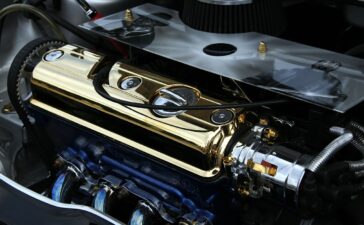Precision turbos are high-performance turbochargers that are designed to increase the power and performance of engines. These turbochargers are precision-engineered to deliver more air into the engine’s combustion chamber, resulting in increased horsepower and torque.
But how exactly do precision turbos work? Well, let’s break it down. Inside the precision turbo, exhaust gases from the engine flow through a turbine wheel, causing it to spin rapidly. This turbine wheel is connected to a compressor wheel by a shaft. As the turbine wheel spins, it spins the compressor wheel, which sucks in fresh air and compresses it before delivering it into the engine.
By compressing the air, precision turbos increase the density of the air-fuel mixture in the engine, allowing for more efficient combustion. This means that each explosion in the engine’s cylinders produces more power, resulting in increased overall performance.
Precision turbos are highly sought-after by car enthusiasts and professional racers because of their reliability and performance gains. These turbochargers can be found in a wide range of applications, from streetcar upgrades to high-speed race cars.
To ensure the best performance, it’s important to choose the right precision turbo for your engine. Factors like engine size, power goals, and desired boost levels should all be taken into consideration. Additionally, proper installation and regular maintenance are crucial to keep precision turbos running smoothly.
Precision turbos are turbochargers that enhance engine performance. By increasing the amount of air in the cylinders, these turbochargers generate more power and torque. Remember, when seeking performance upgrades, precision turbos are the way to go.









